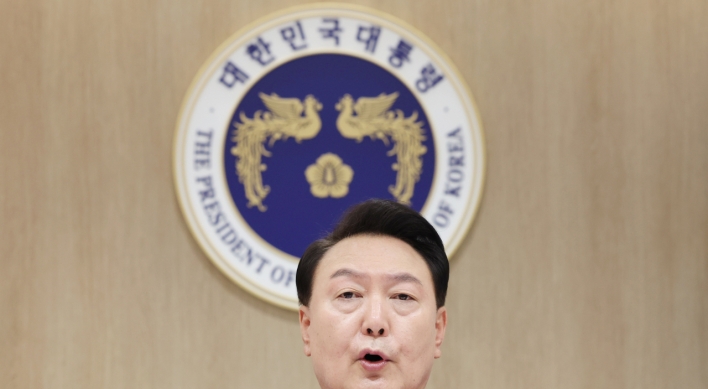'IT 공룡' 애플이 20년 이상 아일랜드 정부와 불법적 세금 뒷거래를 해온 혐의로 기소돼 수십억 유로의 벌금을 물어야 할 위기에 처했다고 파이낸셜타임스(FT) 인터넷판이 29일 보도했다.
신문은 애플의 조세포탈 의혹을 조사해온 유럽연합(EU) 집행위원회가 이번 주중 애플과 아일랜드 당국 간 불법적 세금 뒷거래의 상세 내용을 발표할 예정이라며 이 같이 전했다.
EU 집행위의 예비조사 결과 애플은 아일랜드에 법인을 설립해 현지 고용창출에 이바지해주는 대가로 아일랜드 당국으로부터 불법적 국고보조를 받아온 것으로 드러났다.
그 결과 애플은 2%에도 못 미치는 저렴한 법인세를 내면서 아일랜드에 법인을 운영할 수 있었다.
아일랜드 코크주(州)의 최대 고용기업 중 하나인 애플은 최근 수년간 아일랜드 법인에 1억 달러(약 1천45억 원)를 투자했다.
1980년대부터 아일랜드에서 영업활동을 해온 애플은 그러나 아일랜드 당국과의 거래에서 어떠한 범법 행위도 없었다는 종전의 입장을 고수했다.
루카 마에스트리 애플 최고재무책임자(CFO)는 "(아일랜드 정부와) 어떠한 특별한 거래도 없었고, 국고보조라고 해석될 만한 것도 없었다"고 주장했다.
애플과 아일랜드 정부 간 세금 뒷거래에 대한 EU 집행위의 심층 조사는 호아킨 알무니아 EU 경쟁담당 집행위원이 '다국적 기업의 공격적 조세회피'라고 지칭한 다 국적 기업의 조세포탈 의혹에 대한 광범위한 엄중단속 활동의 일환이다.
EU 집행위는 애플뿐 아니라 이와 비슷한 사례로 스타벅스와 네덜란드 정부, 피아트 파이낸스&트레이드와 룩셈부르크 정부 간 부당거래 의혹에 대해서도 조사를 진 행 중이다.
피아트 파이낸스&트레이드는 이탈리아 자동차그룹 피아트의 금융부문 회사다.
애플에 대한 EU 집행위 조사의 초점은 애플이 아일랜드에서 다른 기업들은 누리 지 못하는 특별한 세금 혜택을 받았는지에 맞춰져 있다.
기업에 제공하는 국고보조에 대한 법적 규제는 EU 권역에서만 볼 수 있는 독특한 제도다.
EU 집행위는 과거 10년 동안 이뤄진 불법 지원 금액을 회수할 수 있는 광범위한 권한을 갖고 있다.
아직 애플이 아일랜드 정부로부터 받은 국고보조의 규모를 EU 집행위가 정확히 산정하지는 않은 상황이지만, 수십억 유로에 달할 것으로 추산된다고 FT는 분석했다 .
애플은 아일랜드에 법인세가 없던 1980년대부터 영업을 시작했지만 1991년 아일랜드 정부가 관련법을 개정하면서 아일랜드 조세 당국과 이른바 '이전(移轉)가격협정'을 체결, 세금 상의 특전을 받아왔던 것으로 알려졌다. (연합)
<관련 영문 기사>
EU says Apple gets illegal tax benefits in Ireland
Apple risks having to repay Ireland tax rebates worth billions of dollars after the European Union’s competition watchdog said Tuesday the company appears to be benefiting from illegal tax deals there.
In a preliminary report into the company’s overseas tax practices, the 28-nation bloc’s executive Commission said the low tax treatment Ireland is granting Apple counts as state aid and could be illegal under EU law.
If the finding is confirmed, Apple Inc. could face a huge repayment bill because it funnels the bulk of its international sales through subsidiaries in Ireland.
To keep market competition fair, the EU forbids governments from helping individual companies. The EU first announced the tax probe in June, also targeting coffee chain Starbucks and others as part of a crackdown on multinationals exploiting tax loopholes.
The EU Commission is now requesting further documents from Ireland before making a legally binding decision on whether the rebate granted to Apple is illegal and must be recouped, wholly or partially.
The EU probe focuses on exaggerated transfer pricing, where one part of a company charges another part an inflated price for goods or services to shift profits to low-tax locations.
If Apple had to repay some taxes, the money would come as a windfall to Irish state coffers. However, fearful of losing its reputation as a business-friendly country with low corporate taxes, the Irish government is adamant that no EU rules have been breached.
The Commission said the tax deals Ireland struck with Apple in 1991 and in 2007 show “several inconsistencies” and may not comply with international taxation standards. The Brussels-based executive body also was critical of the fact that Apple’s applicable tax rate appears to have been the result of “a negotiation rather than a pricing methodology” which a “prudent, independent” tax authority should not have accepted.
The Commission added documents provided by Irish authorities, including minutes of meetings with Apple’s tax advisers, fail to provide a consistent explanation for the agreed tax rates. It did not publish an estimate for Apple’s effective tax rate in Ireland.
Apple maintains it has not received a favorable treatment in Ireland.
“We’re subject to the same tax laws as the countless other companies who do business in Ireland,” the company said in an emailed statement. “Apple has received no selective treatment from Irish officials over the years.”
The company added that its tax payments to Ireland increased tenfold since it launched its first iPhone in 2007. In the statement, Apple also said that on a global level, “comprehensive corporate tax reform is badly needed.”(AP)



















